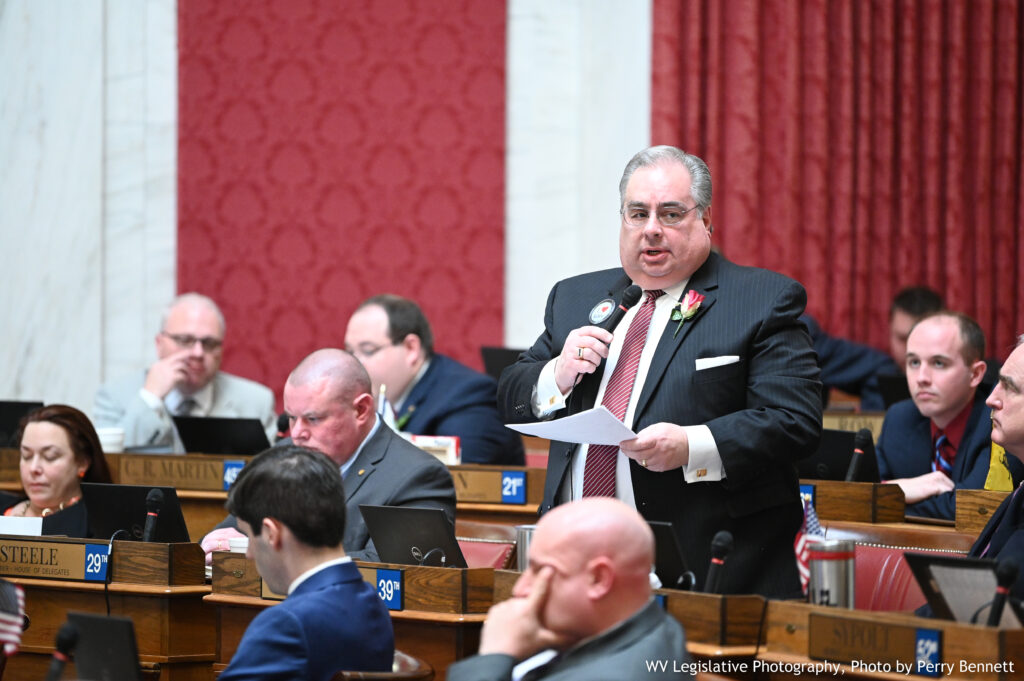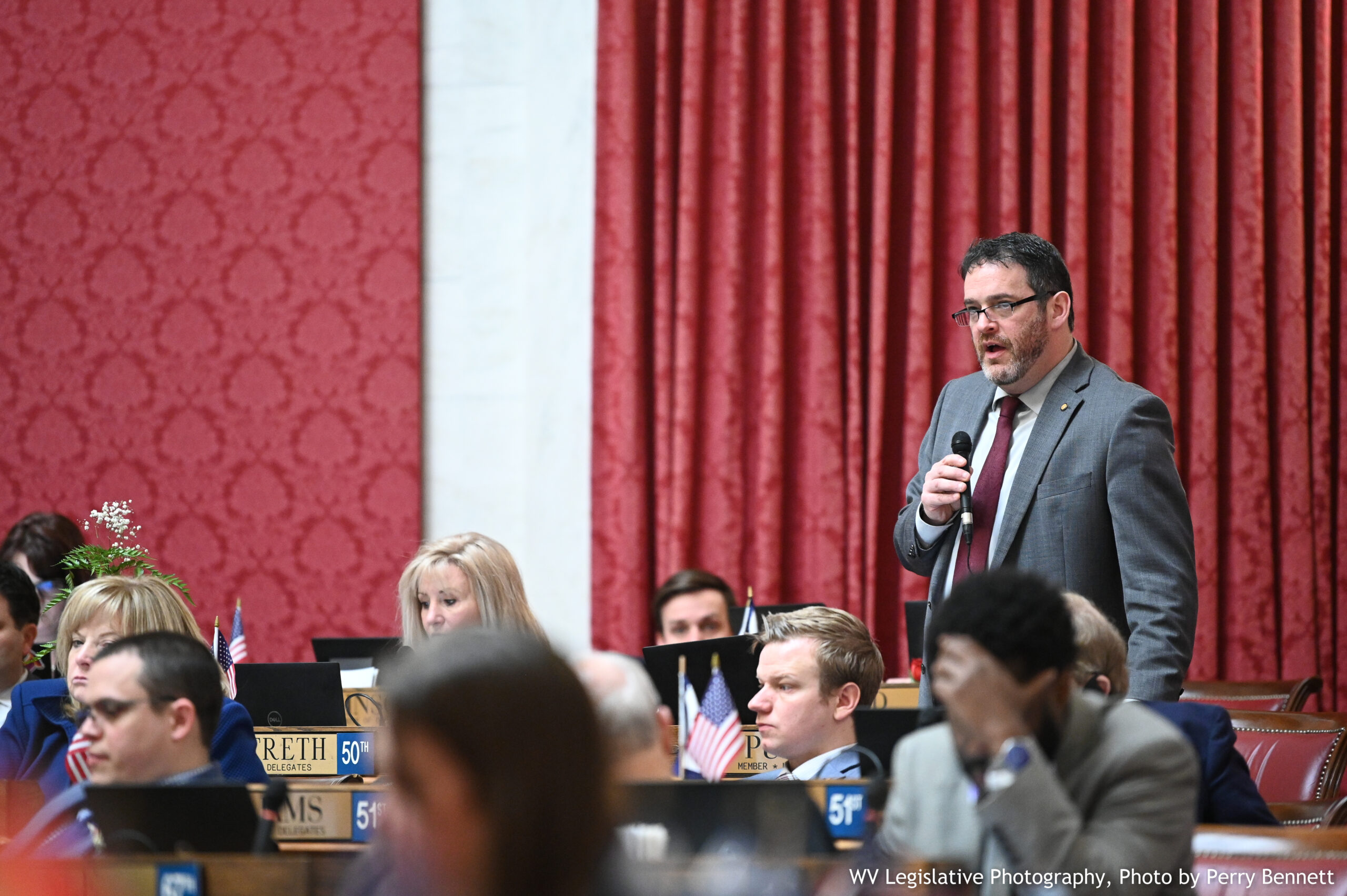MORGANTOWN — The House of Delegates on Monday snuffed an amendment to a bill aimed at allowing high schools to offer elective courses on the historical and literary significance of the Old and New Testaments.
HB 4780 was n second reading, the amendment stage, and was the subject of a whirlwind public hearing earlier in the morning.
HB 4780 and its Senate sister, SB 38, were introduced to teach students “knowledge of biblical content, characters, poetry, and narratives that are prerequisites to understanding the development of American society and culture, including literature, art, music, mores, oratory, and public policy,” along with the history and literary styles of the Bible.
The bills were crafted to conform to constitutional requirements for teaching the Bible as literature in an objective, secular academic program. County boards would design the elective course for review by the state board. The bills would allow a teacher to choose any version or translation of the Bible and students to choose any version or translation to read along.
Counties would submit their proposed elective courses to the state Department of Education for review.

Last week, Senate Judiciary overwhelmingly voted to amend SB 38 to make it more ecumenical, by changing it to allow courses on any sacred texts or comparative religion.
On Monday, Delegate Mike Pushkin, D-Kanawha, proposed the same amendment to HB 4780.
He cited the morning’s public hearing put on by the Education Committee, which took only 30 minutes and allowed speakers only one minute to air their views. Speakers were almost evenly divided: 11 for, 12 against.
Among the opponents at the hearing was Herb Montgomery, with the social-justice oriented Renewed Heart Ministries. “We have a civil government, not a moral police,” he said. “If you mix horse manure and ice cream it doesn’t do much for the manure but it sure as hell ruins the ice cream.”
Opponents fear that the legislation would ostracize and marginalize children of minority faiths. Rabbi Victor Urecki, of Charleston’s B’nai Jacob Synagogue, was among them. There are many sacred texts for many faiths, he said. “Let’s celebrate our cherished sacred texts by keeping them where they’re truly celebrated.”
Malco Cohen, a Piedmont Elementary third-grader, talked about an after-school program offered at the school on the Bible and Jesus, where the students were made to pledge allegiance to the Bible. “It made me feel very worried and confused. I felt like I was doing something wrong.”
The school realized he and his brother, who are Jewish, shouldn’t have been there. So they would be sent to a room by themselves in the future. “That solution seemed so, so stupid to me.”
Supporters cited statements from the Founders abut the role of the Bible in forming the country and educating its citizens, naming James Madison, John Adams, Patrick Henry and John Jay among others.
Bo Burgess added that the Bible is the best-selling book of all time. “why wouldn’t you want the youth of America to be exposed the best-selling book of all time?”
High schooler Brynn Burke said, “Kids are losing a sense of the things that made this country great. The Bible is part of our country’s identity.”
Pushkin, like some of the opponents at the hearing, cited the diversity of the culture and the potential to ostracize some kids. He is Jewish and said that the bill discriminates buy calling the first half of the Bible the Old Testament. That’s not what Jews call it, so the bill discredits them in that respect alone.
Amendment co-sponsor John Doyle, D-Jefferson, said many other sacred texts are important in history and those should be understood too.
Bill lead sponsor Kevan Bartlett, R-Kanawha, said the amendment departed from the intent of the bill. The Bible is the most influential and significant book of all human history apart from its religious and theological implications. The bill simply offers a choice to study it from the perspective of its historical and cultural significance.
The amendment failed in a roll-call vote, 45-53, mostly but not entirely along party lines. Some Democrats voted against it, some Republicans voted for it.
HB 4780 is on third reading for passage on Tuesday.
SB 38 was also on second reading on Monday and an amendment was expected to undo the Judiciary restore the original intent. But delays caused by the extend debate over the business inventory tax measures – SB 837 and SJR 9 – led to leadership moving it to third reading on Tuesday with the right to amend at that time.
Tweet David Beard @dbeardtdp Email dbeard@dominionpost.com




